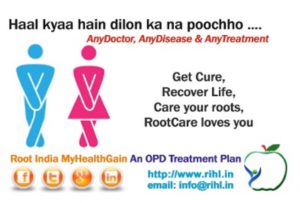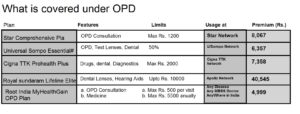In some areas, such as OPD (outpatient department) cover has limitations remain. Owing to growing risks by environmental hazards and lifestyle diseases. People are visiting hospitals frequently nowadays for smaller medical interventions. This is such as consultations for minor health issues, diagnostic tests, pre-emptive check-ups, etc.
At least the one-fifth of Indians who have chosen to buy health insurance don’t like to take a chance with their health, according to reports. However, these visits burn a hole in the pocket, especially of those who live in the big metros.
While day care treatments have now been integrated into most new health insurance offerings, OPD cover continues to be omitted by most flagship products. This is seen as a major irritant by the population that buys health insurance. Buyers believe that a health insurance policy should take care of every small cost they might incur on health. If they still have to pay for health issues, they become disgruntled.
The rising burden of OPD spending is making such a cover even more critical. In India, a whopping 60% of healthcare spend is on OPD treatment. The lack of an efficient mechanism and absence of a closed network structure are the chief obstacles preventing insurers from introducing worthwhile and sustainable OPD products.
A few insurers have now developed an in-built OPD feature in their health insurance policies. These include Star Comprehensive Health Insurance plan, Cigna TTK Prohealth, Royal Sundaram Lifeline Elite, Universal Sompo’s Individual Privilege Health Insurance Plan and Apollo Munich’s Health Plan.
Do OPD plans offer good value?
This is a difficult question to answer because OPD features are not priced separately but are bundled with plain-vanilla health insurance plans. This is primarily because a separately priced OPD feature doesn’t follow the principle of insurance and spread of risk, resulting in an almost 100 per cent pricing for the benefits provided. but now Root India is working this direction. Well planned OPD management snapshot of the plan comparison; See table: What is covered under OPD.  The level of coverage differs from one plan to another. Some plans only cover expenses incurred on dental consultation or optical treatment in network hospitals. Whereas others cover all forms of OPD.
The level of coverage differs from one plan to another. Some plans only cover expenses incurred on dental consultation or optical treatment in network hospitals. Whereas others cover all forms of OPD.
Should you buy an OPD cover?
A typical OPD plan that would provide a benefit of, say, Rs 5,000 a year is usually Rs 4,000-4,500 costlier than a normal IPD (in-patient department) plan. Therefore the decision to buy an OPD cover depends on how frequently you visit in OPD. Typically OPD requirement comes families with young kids or older parents . Now you can manage & get cashback with Root India OPD Plans.

Rooting the OPD cover
A fairly priced Root India OPD plan that provides value to all kinds of customers. They can use for existing or seasonal effect and normal OPD treatment too.
Insurance products are very expensive if OPD opted. Many insurers even pay peanuts as coverage against highly inbuilt premium for OPD coverage. Root India has fantastic opd cashback plans. Patients may get cashback for all unwanted opd expenses. Indian customers will then reap the full benefit of OPD plans in their portfolio that are able to take care of all types of health problems they may face.
nice information
Comments are closed.